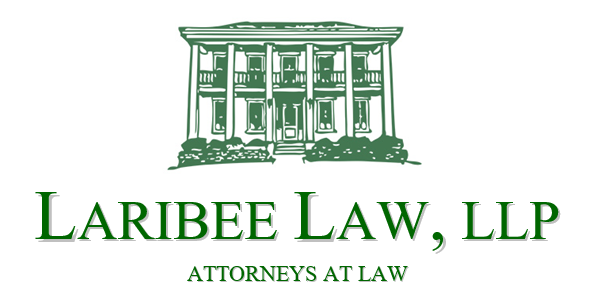Purchasing Farmland? Watch CAUV Tax Recoupment
Michael L. Laribee, Esq.
Charles and Carolyn always dreamed of building a home in the country with plenty of land. When a local farmer listed a twelve-acre parcel for sale, they jumped at the opportunity. The farmer had used the land exclusively for growing soybeans for the past ten years. Charles and Carolyn planned out the location of their new homesite which included construction of a large lake. They were not farmers and had no intention of growing crops on the land.
The sale closed without a hitch. Charles and Carolyn built their dream home and settled into their new rural surroundings. The following year, they received their real property tax bill from the local treasurer’s office. To their dismay, their tax bill contained a line item for “CAUV recoupment” with a large tax due. Charles and Carolyn contacted the local auditor’s office to question the charge. The auditor clerk confirmed that the tax amount was correct and explained that it was a result of failing to continue qualifying agricultural activities on the land. Charles and Carolyn consulted with an attorney and learned that they were stuck with the tax because their purchase agreement did not require the seller to pay this tax recoupment.
The Current Agricultural Use Value (CAUV) is a provision in Ohio law that allows tax values for agricultural land to be set well below true market values. This results in a substantially lower tax bill for working farmers.
Generally, CAUV land includes ten or more acres of land devoted exclusively to commercial agricultural use. Parcels under ten acres can be included in CAUV provided that the farm produce an average yearly gross income of at least $2,500. The owner of agricultural land must file an application with the county auditor requesting the auditor to value the land under CAUV values. The Ohio Department of Taxation sets the CAUV values for each of Ohio's soil types and posts them yearly.
The agricultural use includes animal or poultry husbandry, aquaculture, algaculture (farming of algae), apiculture, the cultivation of hemp (by a person issued a hemp cultivation license) and the production for a commercial purpose of timber, field crops, tobacco, fruits, vegetables, nursery stock, ornamental trees, sod, or flowers.
But what happens when property is sold and no longer used for commercial agricultural use? Ohio law provides that when land registered in CAUV no longer qualifies, the tax savings under CAUV must be recouped. The county auditor must levy a charge on the land in an amount equal to the amount of the tax savings during the three tax years immediately preceding the sale. This becomes a lien on the property just like traditional real property taxes. In other words, the new owner gets a tax bill for the tax savings the seller enjoyed over the past three years.
Accordingly, when purchasing or selling farmland, it is very important to address the issue of CAUV recoupment in purchase agreements. The parties should negotiate who will pay the tax recoupment if it is levied. Oftentimes, the buyer will be given a credit at closing equal to the amount of tax recoupment. That way, the buyer will have the funds to pay the tax bill when it comes due. Other times, a purchase agreement states that the buyer must continue qualified farming activity on the land or pay the recoupment. It is important to consult a trusted real property attorney to address the proper allocation of CAUV tax recoupment when buying farmland. Otherwise, you may receive a surprise tax bill in the mail. The attorneys at Laribee & Hertrick, LLP are here to assist you.
This article is intended to provide general information about the law. It is not intended to give legal advice. Readers are urged to seek advice from an attorney regarding their specific issues and rights.
Michael Laribee is a partner in the Medina law firm of Laribee Law, LLP. This article is intended to provide general information about the law. It is not intended to give legal advice. Readers are urged to seek advice from an attorney regarding their specific issues and rights.

